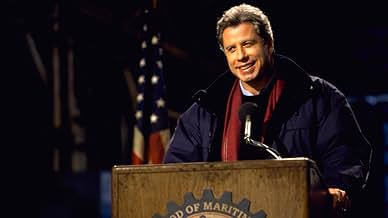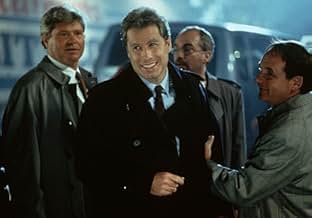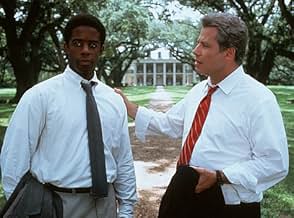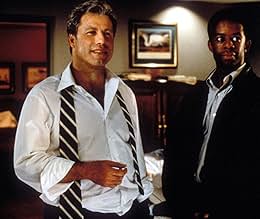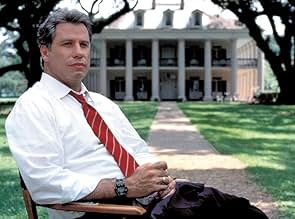Having heard the book was an unbridled attack on Clinton, I was afraid this film would be the same, but it wasn't. "Primary Colors" was definitely better than I thought it would be.
First, there was Elaine May's script: Funny, well-written, lean, tender at moments, never taking things to the camp level, like so many modern Hollywood movies do when it doesn't work. And it wouldn't have worked for this movie. The thing that kept me watching was that, like Henry, I *did* believe in Jack Stanton, or at least I wanted to. The tender moments, like those at the beginning in the literacy class, kind of endeared me to the Stanton character and made me understand how Burton was drawn in so irrevocably.
Then, there was the acting: marvelous. Travolta, Thompson, Bates: need I say more? Thompson's underlying, clipped accent adds a brittle note to her delivery that fits right in with Susan's repression and humiliation. Travolta was just nice enough to make you believe in him (although, in my opinion, he was ultimately unable to fully portray that "je ne sais quoi" that Clinton possesses, which makes him so charming to many). Bates was riveting and harrowing as the faded liberal clinging to her ideals.
But in addition to the "name actors" there were others who were fantastic: Adrian Lester, as the tortured campaign aide, wants to believe but feels unsure of Stanton's worth as a candidate. Maura Tierney (best known as the wife in "Liar Liar") as the bubbling, funny sidekick to Lester (probably based on Dee Dee Myers), lights up every scene she's in. Larry Hagman, in a wonderful cameo, plays Stanton's opponent and his foil in the morals department.
Billy Bob Thornton plays the James Carville role, and I wasn't sure what he added to the film. Since I constantly compared his character unfavorably to James Carville (the Thornton character was shown as a real rotter, sexually harassing aides, etc.), I'm not sure if my dislike of Thornton was more my dislike of his character than that of his acting.
The production of this film also added to its wonderful feel: the Governour's Mansion, the local ribs place, the constant red/white/blue theme (sometimes it seemed like a Kieslowski film), all of it added to the ambiance. I was not surprised to learn that the Michael Ballhaus, the cinematographer, also filmed the sumptuous "Age of Innocence." Quality tells.
Mike Nichols's directing was also effective: in one especially harrowing scene, Emma Thompson's tormented face fills up the foreground, while Bates's character (in the background) rips into the Stantons' morals. I almost felt like I was at the theater.
This film made me think about Clinton as well as politicians in general. What is admirable, what is not acceptable, what is it we really *want* in our public officials? I don't think "Primary Colors" will change anyone's opinion of the Clintons (in the final analysis, it isn't about them at all) -- but it is a very funny as well as thought-provoking look at modern American politics.


